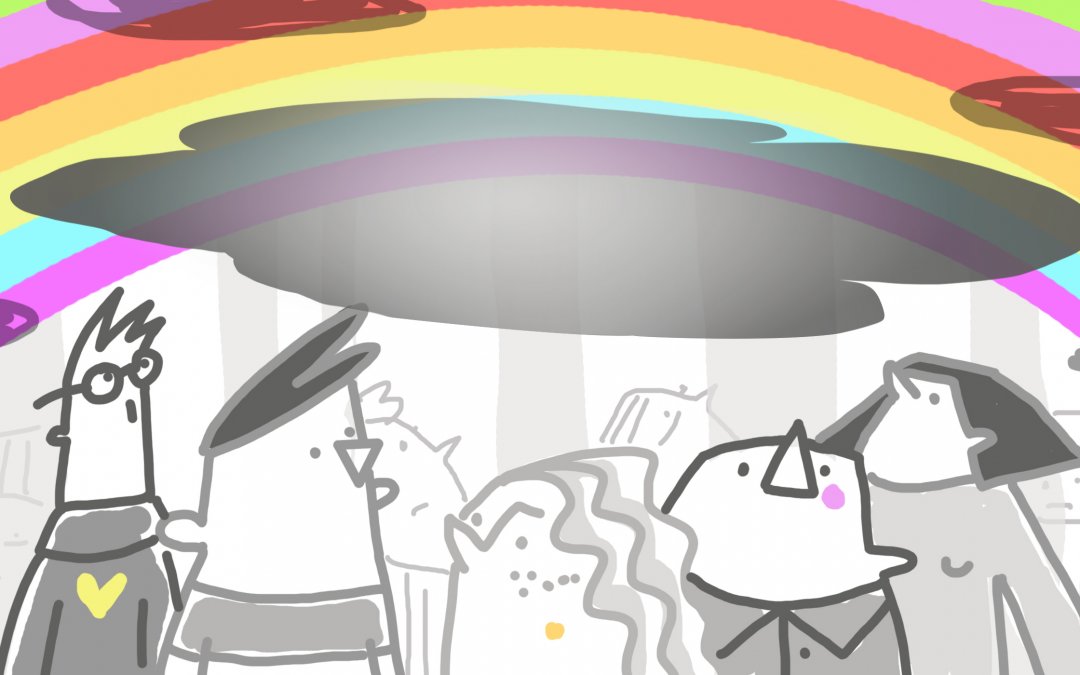NONrosy outlook: who violates LGBT+ people’s rights and how
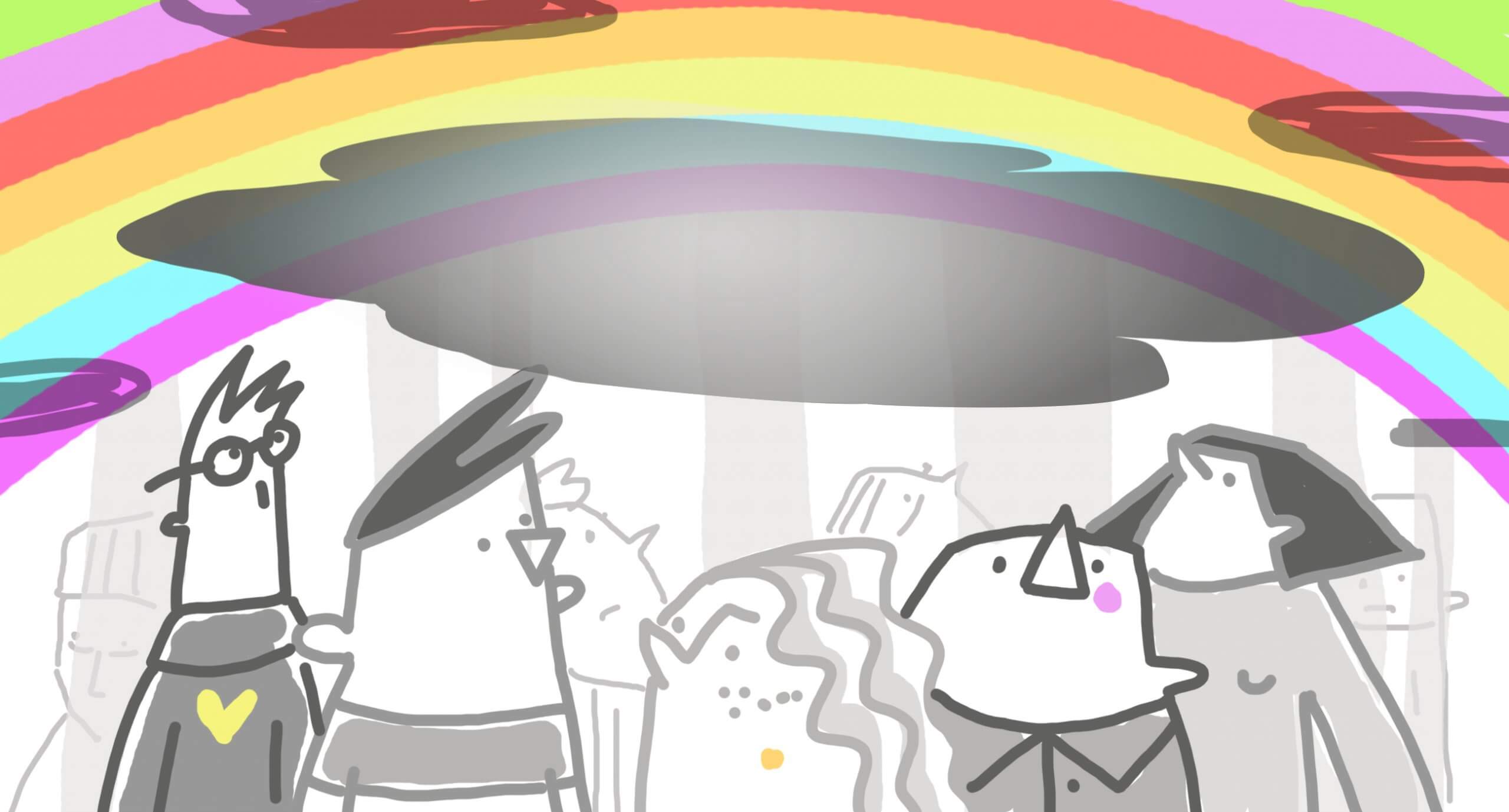
The Constitution of Ukraine guarantees equal rights and freedoms to every citizen. In reality, however, things look different. In September 2021, the 8th Equality March took place in Kyiv – it was the first time that a large-scale LGBT event in Ukraine ended without casualties or violence.
However, the total number of homophobic harassment incidents and attacks in Ukraine did not decrease over the year – especially since it has been more difficult to collect data on such incidents during the pandemic. In 2020, human rights activists recorded 188 cases of LGBT+ rights violations in Ukraine, as compared to 331 cases in 2019 and 365 cases in 2018. According to the LGBT human rights centre Our World, 81 cases of homophobic/transphobic crimes and other violations of LGBT+ rights in Ukraine were recorded in the first seven months of 2021. Harassment of LGBT activists and human rights defenders has also increased.
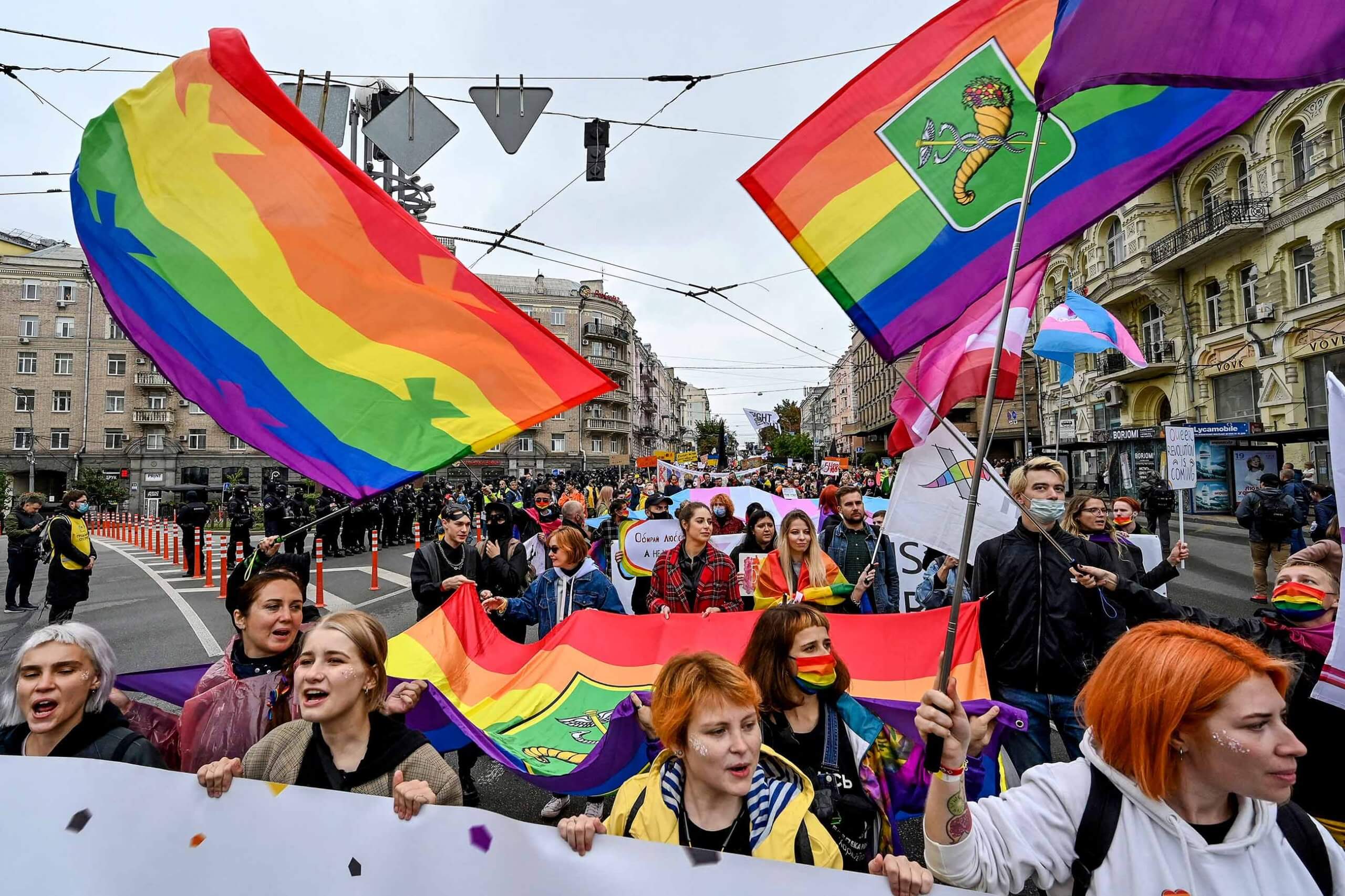
Equality March in Kyiv, 19 September 2021. Photo: SERGEI SUPINSKY / AFP via Getty Images
“Everyone has the right to life, freedom and integrity”
It was late June 2019. Oleg and his friends went out of the cinema and walked into a grocery store. Hardly had they left the shop, they were pepper-sprayed by three unknown assailants. Friends rushed asunder, and Oleg thought he had made a get-away from his pursuers. But eventually, they caught up with him, threw him on the pavement and kicked him. Oleg shouted, but passers-by did not intervene. What the young man remembered best were the grey trainers of one of his attackers, who repeatedly kicked him in the body. It was probably that attacker who shouted: “So do you like ass fuck?”
The attackers ran away. The police arrived – they had been called by passers-by. The officers did not draw up a report and only took down Oleg’s passport details. The boy had to call an ambulance himself – medics arrived an hour after the second call. The doctor conducted a shallow examination and then paid little attention to Oleg. At the hospital, the boy was examined by a surgeon, but when he heard the LGBT+ abbreviation he changed countenance and hardly spoke to him again.
The doctor on duty, according to Oleg, addressed him intentionally by the first name and demanded that he undress, even though the survivor was in pain all over his body and it was not easy for him to do so. In response to a request to disinfect the wounds, the hospital staff only laughed. The police did open a criminal case, but the attackers were never found.
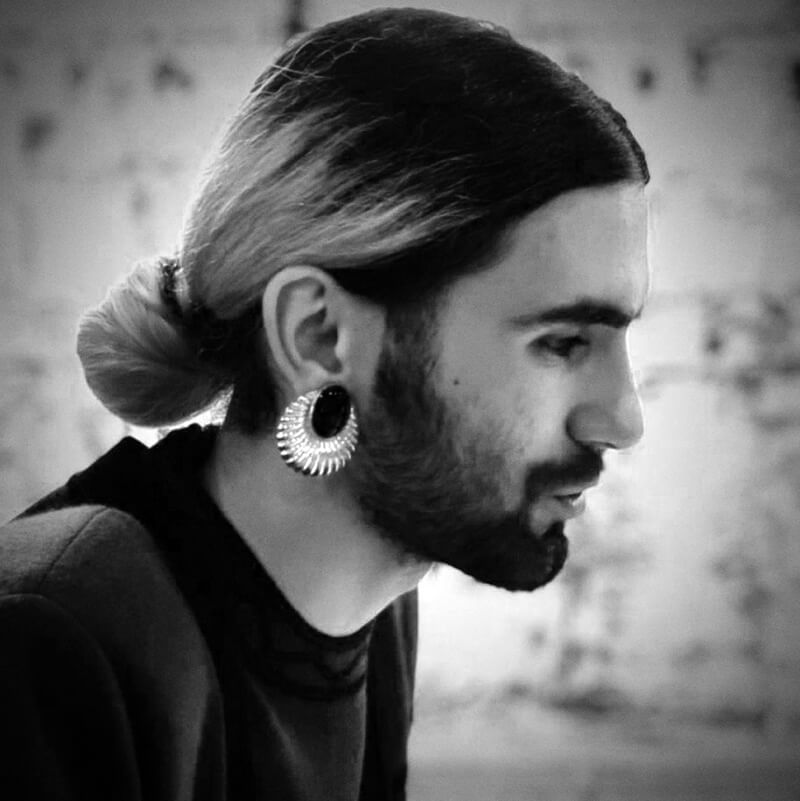
Oleg Rodion Shurygin-Grekalov
According to lawyer Oksana Guz, LGBT persons who receive hate threats or have suffered physical violence are reluctant to file a complaint with the police because they fear repeated attacks and that their LGBT status will be revealed. “However, the number of complaints has increased significantly in the last few years. People seem to have felt confident and empowered to assert their rights,” she told to Zaborona.
According to a study by the Our World human rights centre, in 2018, victims reported to the police in 61 out of 365 documented cases of LGBT+ rights violations; in 2019, 64 out of 331 cases; in 2020, 70 out of 186 cases.
Guz notes that the police often fail to register reports filed and do not enter them into the register of pre-trial investigations – simply put, they don’t get investigated. This happens in 38% of cases. If a complaint is registered, a new problem arises – classification. As a rule, such attacks are treated as disorderly conduct or bodily injuries of varying degrees of severity. This leads to a misrepresentation of actual hate crimes.
Moreover, the situation is affected by homophobia and transphobia among police officers. According to the lawyer, the authorities do not understand the need to register and correctly classify such crimes. Police officers are used to the fact that there are crimes [e.g. murder, robbery, rape, etc.] that are punished with tougher sentences and are investigated faster. However, LGBT+ cases are harder to prove, so they are often dismissed as common disorderly conduct.
According to a study by Our World, in the last three years, the police have not started investigations into homophobic/transphobic crimes in 38% of cases. In only 3.3% of cases were such crimes investigated under the discrimination offence, but the prosecutor’s office has never brought formal charges against the suspects. At the same time, police and prosecutor’s office, according to the study, are paying attention to these problems and supporting draft act No. 5488, which would make it easier to solve criminal discrimination cases.
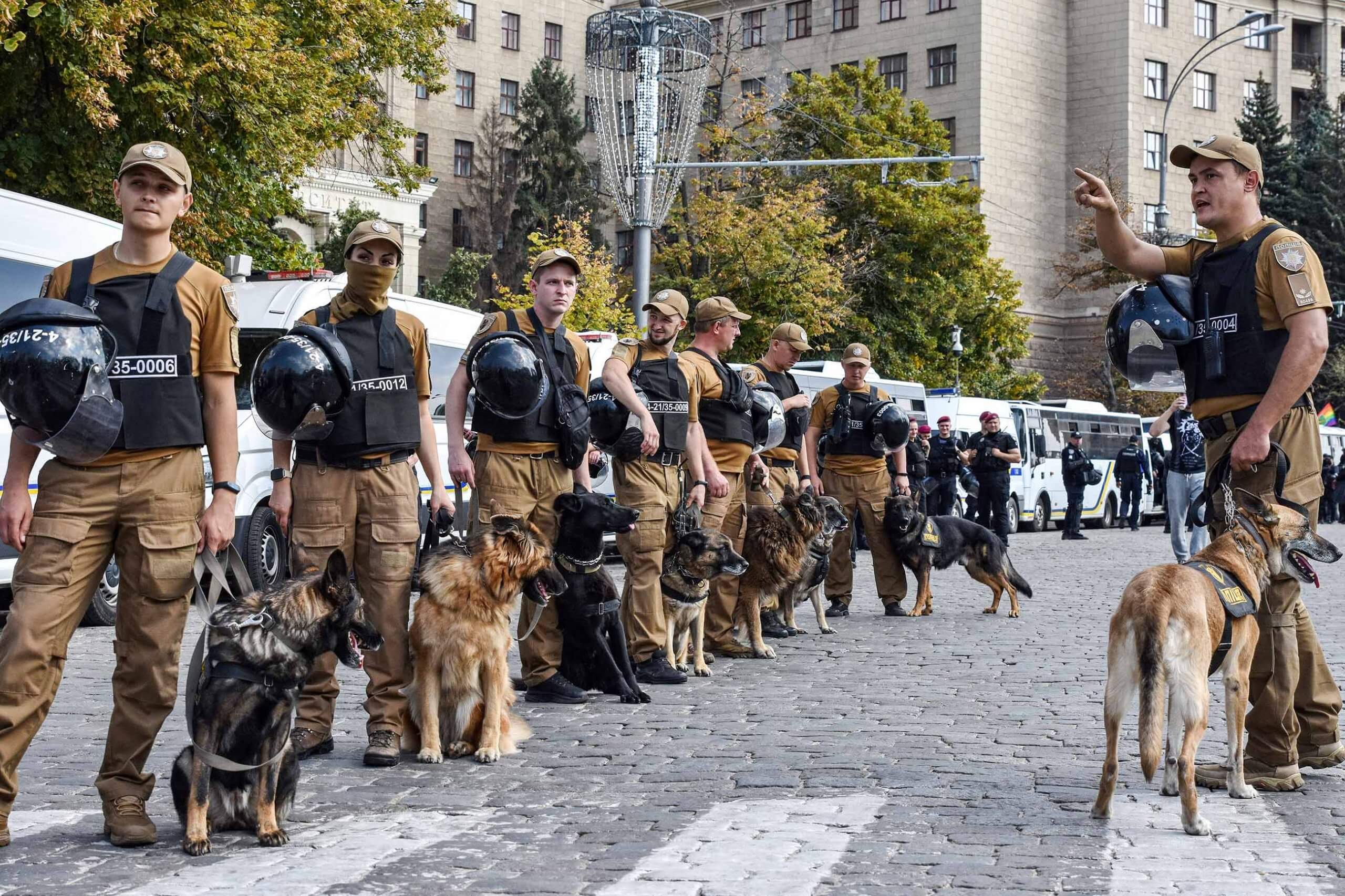
Kharkiv police officers before the start of the KharkivPride, the largest LGBT+ march in eastern Ukraine, 12 September 2021. Photo: Andriy Andriyenko / SOPA Images / LightRocket via Getty Images
The lawyer explains that survivors are hostages of the system. If they insist on a homo/transphobic motive for the crime and provide evidence, this is usually not taken into account in pre-trial investigations. At best such evidence will be disregarded, at worst the suspect will be acquitted. It turns out that if a person has committed a hate crime and is charged under another article without this motive, the classification is wrong and the court may acquit the perpetrator. Therefore, survivors often agree to the classification given by the investigation and supported by the prosecutor. However, in some cases, a compromise can be reached. Then the motive of the crime is stated in the registry, which allows keeping some statistics.
Guz gave an example of the Lviv case when poet Sergey Savin and musician Maksim Verba were beaten on hate motives. “It was classified as disorderly conduct and mugging. However, the case file indicated that the attack was committed because Maksim and Sergey were mistaken for homosexuals,” she said. This is the first time human rights activists have secured a real sentence for homophobic violence. The case will be listed in the register of court decisions and will relate to homophobic crime statistics.
“Everyone has the right to work, to free choice of employment, to just and favourable working conditions and to protection against unemployment”
Maksim is 26 and has been actively looking for work for six years. He is originally from Sloviansk in the Donetsk region, but now lives and studies for a master’s degree in Kharkiv. Maksim has higher education – back in his hometown he was trained as a painter, then graduated from a professional clothing production lyceum, where he mastered the profession of a make-up artist. After that, he studied to be a master of industrial training and manager at a technical school. He is now studying for his master’s degree.
Maksim is a transgender man and gay. He believes he does not dress provocatively, but nevertheless he is rejected time and again when applying for work. The scenario is often the same: everyone is happy with the telephone interview, but as soon as they have a one-on-one interview, the employers back down.
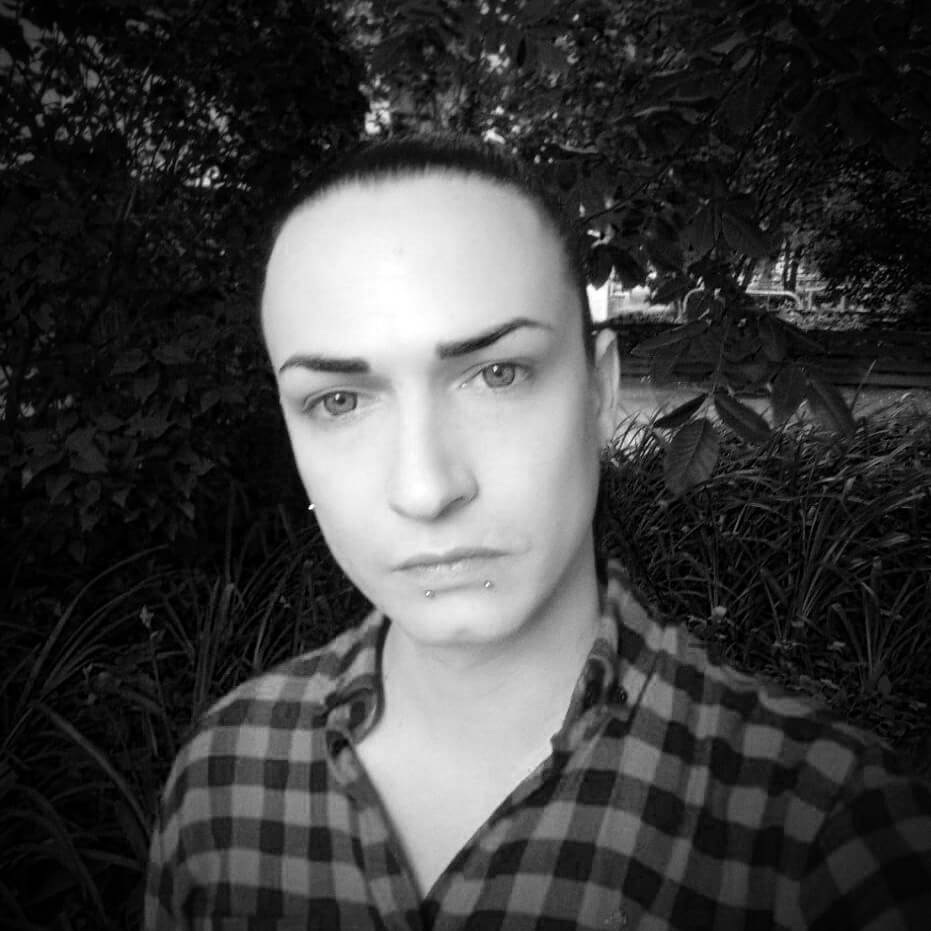
Maksim Nesterenko
“Recently I tried for the umpteenth time to get a job as a cleaner in a cafe. The interview was conducted by an administrator, and everything was going well. At that moment, the director walked by and checked in on us. He looked at me, spat on the floor and left. About an hour later the administrator informed me that I was not hired”, Maksim told Zaborona.
The reason for the rejection is usually not voiced.
The young man points out that women are often careful not to show their dislike, but it can be felt. In situations with men, it has also happened that at the end of a job interview a potential employer has asked directly, “Are you a faggot?” Or, “You’re into boys, aren’t you?” Maksim doesn’t answer anything in such cases, he just walks away.
Maxim has only been hired twice in six years: as a cleaner in a bar and as a mystery shopper [who visits businesses under the guise of a regular customer and assesses the level of service]. To earn a living, he took make-up courses. Before the pandemic, there were plenty of customers for make-up and eyebrow correction, but now there are hardly any. To make ends meet, Maksim creates different decorations for the interior, but so far they don’t sell well.
Maksim’s story is not an exception. For example, in December 2019, when applying for a job at the TV channel Inter, journalist Vladimir Novak was conditioned to remove “gay photos” with his partners from social media. He refused.
Homophobic attitudes sometimes manifest themselves after a person is hired. LGBT people are deliberately subjected to unbearable working conditions to get them to resign. If it does not work out, they are fired for spurious reasons. Because of this many LGBT people prefer to hide their orientation at work.
At the same time, the law is on the side of those being discriminated against: the Labour Code of Ukraine prohibits any discrimination in the workplace – including based on gender identity, sexual orientation and other grounds.
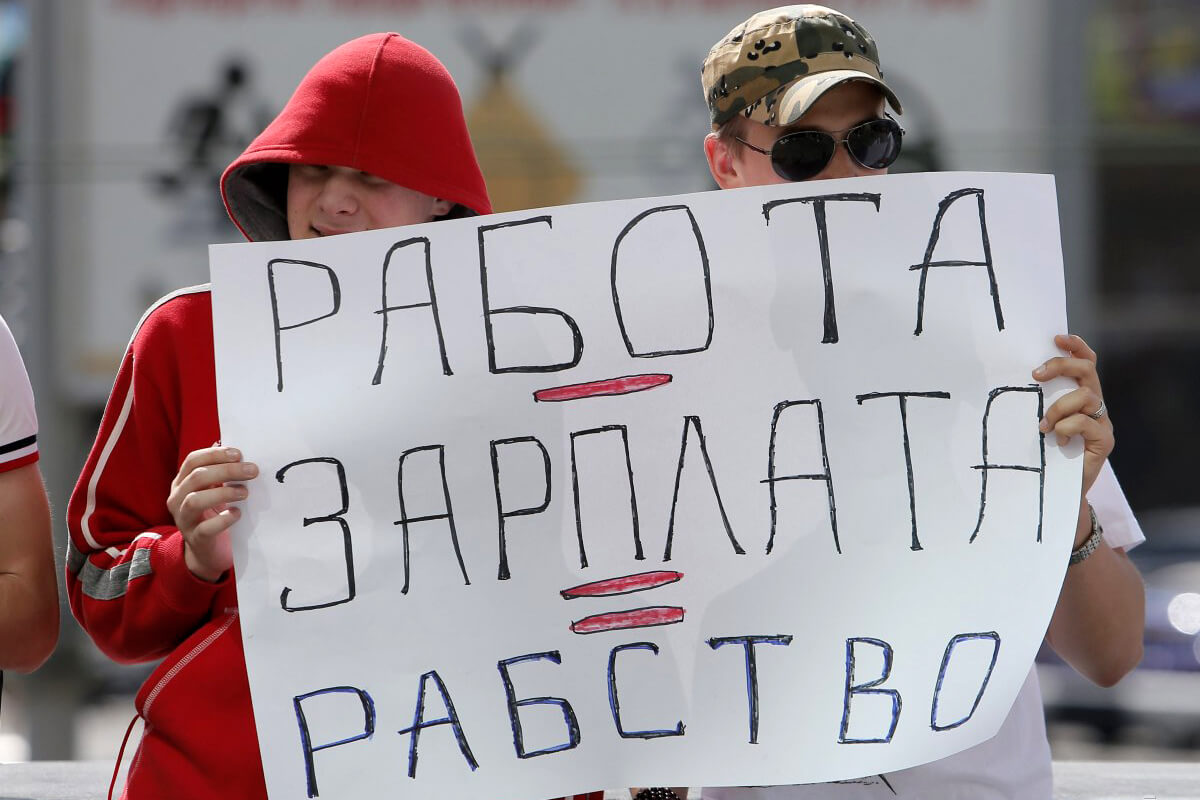
Photo: Vladimir Gontar / UNIAN
“Everyone has a right to education”
Hate-motivated discrimination in the education system is not discussed as often or as widely as cases of violence. However, there have been two recent stories of discrimination and xenophobia at the Ukrainian Catholic University.
In 2019, non-binary person Kinder Limo (who uses “they” as a personal pronoun) was forced to leave the university. Talking to Zaborona, they note that the starting point was an incident when two priests in cassocks approached them in the canteen and forced them to remove an LGBT flag lying on the table. A complaint was then filed against them because of that situation and they were summoned to the dean’s office for “educational talks”. In the end, Kinder Limo decided that a break was needed and wrote a letter of academic leave. After the break, they wanted to return, because, according to them, studying was as comfortable as possible thanks to the teachers and students who are progressive and tolerant at UCU.
However, sometime later one of the students said that the UCU board discussed the incident and gave the command to expel Kinder Limo due to poor academic performance or to make them write a letter of voluntary resignation. Kinder Limo could not believe to the last that discrimination was so real and it happened to them.
The university press office noted that the administration had problems with Kinder Limo solely because of their failure to cope with the academic programme and unacceptable behaviour on campus.
Another situation affected Alyona Lyasheva, a senior lecturer in the sociology department at UCU. She resigned from the university voluntarily in October 2020. One of the reasons was the incompatibility of her personal views and homophobia at the university.
“When you become part of the UCU community, no one explicitly obliges you to be homophobic. But a certain invisible hegemony is reproduced. I was ready to tolerate these informal rules and not express my views loudly and publicly, to hide my bisexuality and polyamory for the sake of being able to teach. No one censored me in my classes, and this was for me the main criterion for the acceptability of cooperation with the university,” Lyasheva wrote in a Facebook post about her resignation.
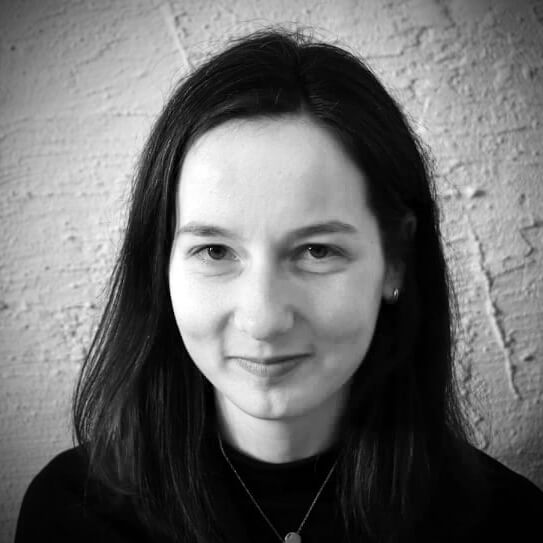
Alyona Lyasheva
Talking to Zaborona, Alyona Lyasheva said that the university justifies its homophobia with religion, which, in her opinion, has little correlation with the way ordinary parishioners, in particular young people, live: “Many believers, especially students, are not homophobic at all – I speak from personal experience with pious students who support LGBT+.”
The UCU, commenting on the situation with the teacher’s resignation, noted only that she quit voluntarily. At the same time, the university said that when it comes to the treatment of members of the LGBT+ community, the university is guided by official teaching of the Catholic Church, “which calls for respect for the human dignity of such persons”.
“There is no legal impediment to people with a homosexual orientation working or studying at a Catholic University. However, such persons must be aware that a Catholic educational institution is not a place for the promotion of promiscuity, in particular same-sex sexual relations, regardless of whether people with heterosexual or homosexual tendencies engage in this propaganda,” the university has previously stated.
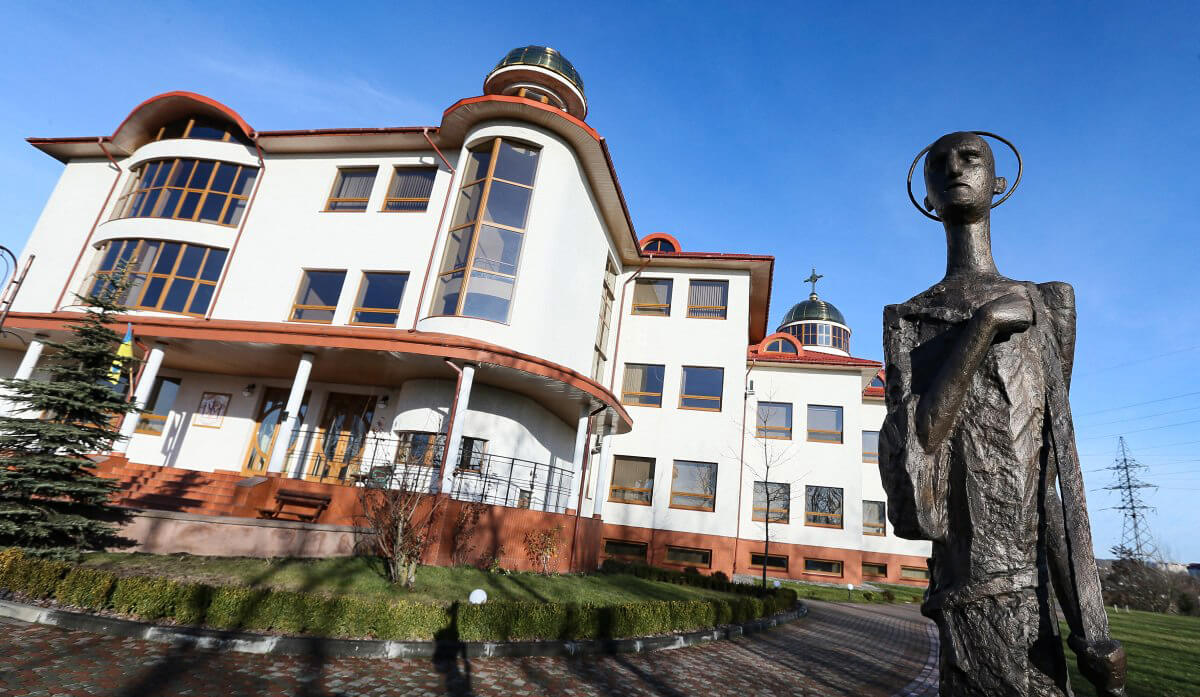
On the other hand, Lyasheva draws attention to the fact that UCU at least voices its position openly. In public universities, professors with conservative views use their power to impose their homophobic outlook on students. It is only recently that this has come to light because students are gradually learning to resist such “teaching”, risking their education, scholarships and dormitory. According to Alyona, this happens everywhere, regardless of the field of study.
Who does the law protect?
Rather not the discriminated LGBT+ people.
“It is difficult to compare Ukrainian legislation with that of other countries. In Ukraine, there is only one provision that de jure protects LGBT+ people – in the Labour Code. There is nothing else,” says human rights activist Elena Shevchenko.
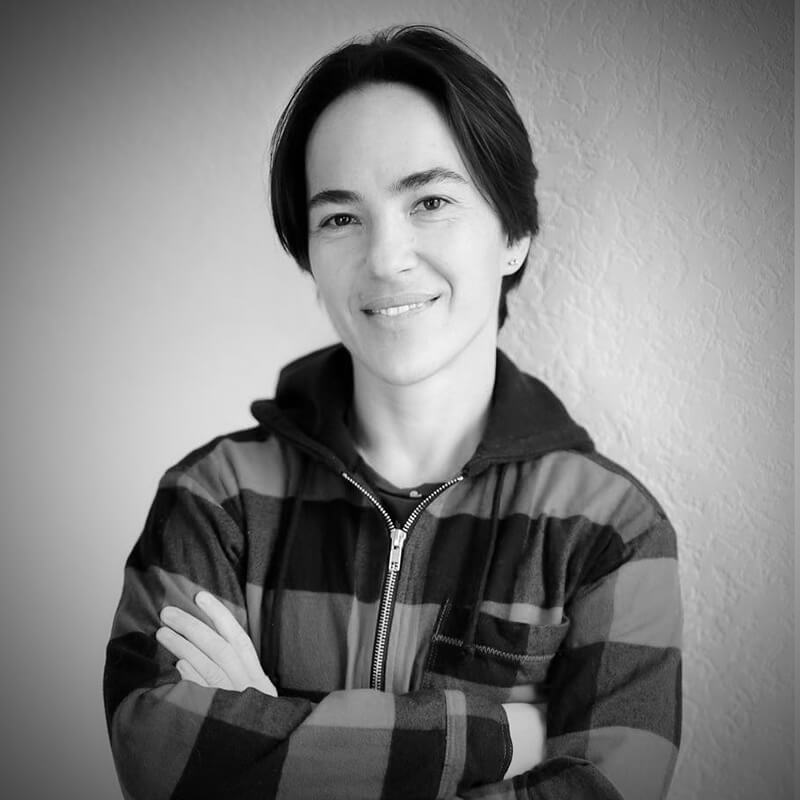
In June 2021, the Verkhovna Rada of Ukraine presented draft act No. 5488, which aims to counteract discrimination, including on the grounds of sexual orientation and gender identity. But it has not yet been passed. Both Shevchenko and Guz are unsure of a positive outcome, as there is a large religious and conservative lobby in the Ukrainian parliament.
Similar bills were considered last year. They were not passed.
How should the system be changed?
At the very least, the legislation should be amended, believes lawyer Oksana Guz. In her opinion, Article 161 of the Criminal Code of Ukraine, which punishes violations of equality based on race, religion and other characteristics, is too cumbersome. It is difficult to prove it so that the case can last through court. A law to combat discrimination is therefore needed. It is equally important to qualify LGBT+ cases correctly. Investigators and prosecutors need to be trained for this, and new guidelines need to be adopted.
“When one is working or studying, one does not have the necessary bureaucratic tools to protect oneself as an employee or as a student. We do have general and basic human rights guaranteed at the level of the labour code, but you often do not find the real tools in specific situations,” Alyona Lyasheva points out. “This is a problem of labour and education legislation, which should give us clearer and more consistent tools to go to court to protect our rights.”
In such a situation, individual strategies for defending one’s rights do not work. According to Lyasheva, progress is possible through collective action, public support and media coverage.
How can LGBT people defend their rights?
First of all, one needs to understand that it will not be easy, it will require effort and patience.
1. If you are discriminated against at work, you can point out to the violator of your rights that such actions are illegal. If it happens in another area, you can refer to the Universal Declaration of Human Rights and point out that the person is violating it. If that does not work, take the next step.
2. You can seek legal assistance and legal support either from an independent professional or from an organisation that specialises in this. In Ukraine, these are Our World, Insight, ILGA, the Coalition to Combat Discrimination in Ukraine, the Equality East Community Centre, and others.
3. You have every right to report to the police or sue someone to protect your rights. There is no need to be afraid, but you should be prepared for rather lengthy court and legal procedures.
This article was originally published in Russian here
Nothing beats good old email
For our monthly newsletter, we pick the most important news and analysis,
and add selected content and art from queer creators.
